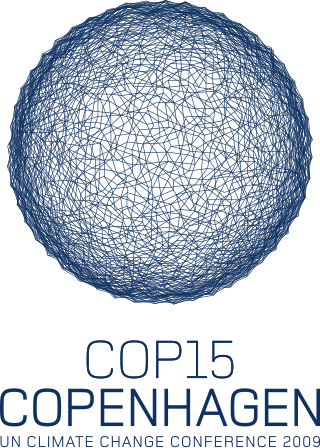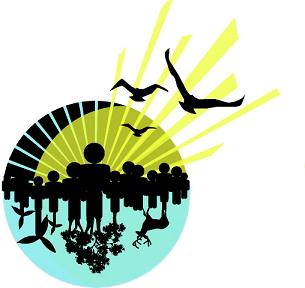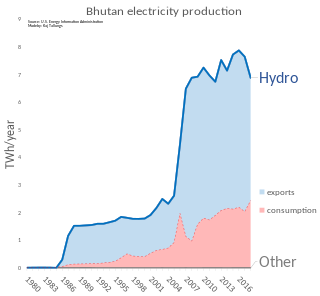
The Renewable Energy and Energy Efficiency Partnership (REEEP) is a Vienna-based Quasi-International Organisation that advances markets for renewable energy and energy efficiency with a particular emphasis on the emerging markets and developing countries.
For solar power, South Asia has the ideal combination of both high solar insolation and a high density of potential customers.

The developing nations of Africa are popular locations for the application of renewable energy technology. Currently, many nations already have small-scale solar, wind, and geothermal devices in operation providing energy to urban and rural populations. These types of energy production are especially useful in remote locations because of the excessive cost of transporting electricity from large-scale power plants. The applications of renewable energy technology has the potential to alleviate many of the problems that face Africans every day, especially if done in a sustainable manner that prioritizes human rights.

The 2009 United Nations Climate Change Conference, commonly known as the Copenhagen Summit, was held at the Bella Center in Copenhagen, Denmark, between 7 and 18 December. The conference included the 15th session of the Conference of the Parties to the United Nations Framework Convention on Climate Change (UNFCCC) and the 5th session of the Conference of the Parties serving as the Meeting of the Parties to the Kyoto Protocol. According to the Bali Road Map, a framework for climate change mitigation beyond 2012 was to be agreed there.
New Energy for America was a plan led by Barack Obama and Joe Biden beginning in 2008 to invest in renewable energy sources, reduce reliance on foreign oil, address global warming issues, and create jobs for Americans. The main objective of the New Energy for America plan was to implement clean energy sources in the United States to switch from nonrenewable resources to renewable resources. The plan led by the Obama Administration aimed to implement short-term solutions to provide immediate relief from pain at the pump, and mid- to- long-term solutions to provide a New Energy for America plan. The goals of the clean energy plan hoped to: invest in renewable technologies that will boost domestic manufacturing and increase homegrown energy, invest in training for workers of clean technologies, strengthen the middle class, and help the economy.
Climate Solutions Road Tour, held between January 2 and February 4, 2009, was a project initiated by the Indian Youth Climate Network which started off at Chennai, India. Alexis Ringwald and Caroline Howe had orchestrated the tour. Ten members of the Indian Youth Climate Network, a group of dancers from the Shiamak Davar dance group, and a solar-powered band "Solar Punch" covered more than 3,500 kilometers.

The Youth Climate Movement (YouNGO) or International Youth Climate Movement (IYCM) refers to an international network of youth organisations that collectively aims to inspire, empower and mobilise a generational movement of young people to take positive action on climate change.

The Canadian Youth Climate Coalition (CYCC) is a nonprofit youth organization in Canada. The coalition consists of various youth organizations, which includes the Canadian Federation of Students, the Canadian Labour Congress, Sierra Youth Coalition, and others. The charity aims to prioritize climate change as a societal issue. Internationally, the coalition is part of the Global Youth Climate Movement.
The Australian Youth Climate Coalition (AYCC) is a youth organisation in Australia focused on climate change activism. The organisation aims "to build a movement of young people leading solutions to the climate crisis", by empowerment and education, running strategic campaigns, shifting the narrative, and building a movement.
Friends of the Earth Europe (FoEE) is the European branch of the world's largest grassroots environmental network, Friends of the Earth International (FOEI). It includes 33 national organizations and thousands of local groups.

Energy in Bhutan has been a primary focus of development in the kingdom under its Five-Year Plans. In cooperation with India, Bhutan has undertaken several hydroelectric projects whose output is traded between the countries. Though Bhutan's many hydroelectric plants provide energy far in excess of its needs in the summer, dry winters and increased fuel demand makes the kingdom a marginal net importer of energy from India.

Climate finance is an umbrella term for financial resources such as loans, grants, or domestic budget allocations for climate change mitigation, adaptation or resiliency. Finance can come from private and public sources. It can be channeled by various intermediaries such as multilateral development banks or other development agencies. Those agencies are particularly important for the transfer of public resources from developed to developing countries in light of UN Climate Convention obligations that developed countries have.
The International Indigenous Peoples Forum on Climate Change (IIFPCC) is the representative body of indigenous peoples participating in the United Nations Framework Convention on Climate Change (UNFCCC).

The 2015 United Nations Climate Change Conference, COP 21 or CMP 11 was held in Paris, France, from 30 November to 12 December 2015. It was the 21st yearly session of the Conference of the Parties (COP) to the 1992 United Nations Framework Convention on Climate Change (UNFCCC) and the 11th session of the Meeting of the Parties (CMP) to the 1997 Kyoto Protocol.
Renewable energy in Thailand is a developing sector that addresses the country’s present high rate of carbon emissions. Several policies, such as the Thirteenth Plan or the Alternative Energy Development Plan, set future goals for increasing the capacity of renewable energy and reduce the reliance of nonrenewable energy. The major sources of renewable energy in Thailand are hydro power, solar power, wind power, and biomass, with biomass currently accounting for the majority of production. Thailand’s growth is hoped to lead to renewable energy cost reduction and increased investment.
Chetan Maini is a co-founder and Vice Chairman at SUN Mobility and an Indian business magnate in the electric car industry. He is best known for building India's first electric car, REVA, and as the Founder of Reva Electric Car Company Ltd, now Mahindra Electric Mobility Limited, where he served as an advisor. SUN Mobility, a joint venture between Virya Mobility 5.0 and SUN New Energy Systems, aims to be a provider of charging points and services to accelerate mass electric vehicle usage. Chetan is the director of Maini Group and co-founder of Virya Mobility 5.0. He is also an investor and on the board of several clean-tech start-ups.
Article 6 of the Paris Agreement on climate change enables Parties to cooperate in implementing their nationally determined contributions (NDCs). Among other things, this means that emission reductions can be transferred between countries and counted towards NDCs. Agreement on the provisions of Article 6 was reached after intensive negotiations lasting several years.
Swayam Shikshan Prayog (SSP) is a non-governmental organization based in Pune, India. It was co-founded by Prema Gopalan and Sheela Patel in 1998 and aims to support female entrepreneurs in areas such as agriculture, health and sanitation. Its work has been recognised by the United Nations Development Programme and the United Nations Framework Convention on Climate Change.
National Action Plan for Climate Change (NAPCC) is a Government of India's programme launched in 2008 to mitigate and adapt to the adverse impact of climate change. The action plan is designed and published under the guidance of Prime Minister’s Council on Climate Change (PMCCC). The 8 sub-missions aimed at fulfilling India's developmental objectives with focus on reducing emission intensity of its economy. The plan will rely on the support from the developed countries with the prime focus of keeping its carbon emissions below the developed economies at any point of time. The 8 missions under NAPCC are as follows:







